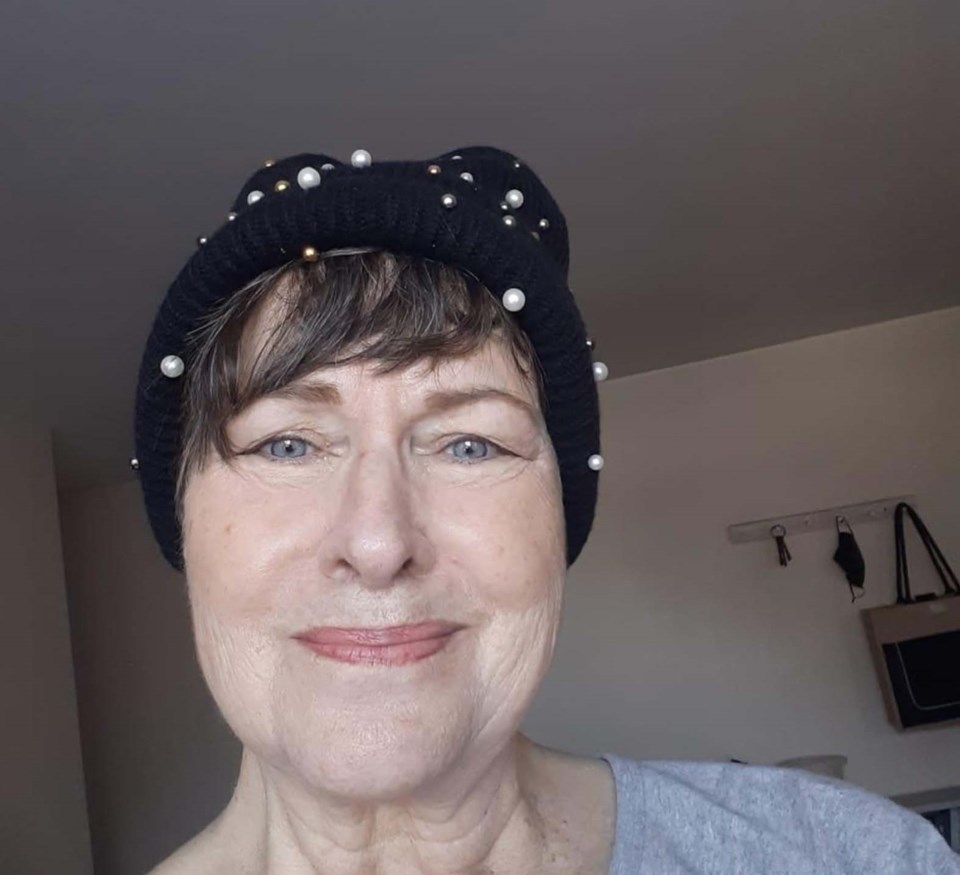Kristine-Maria Bogatin doesn’t want to define herself by her cancer.
The 70-year-old St. Albertan describes herself as “a very healthy sick person.” She avoids heavily processed foods, doesn’t smoke or drink and is even careful not to use cosmetics that may contain carcinogens.
When she was diagnosed last fall, she didn’t feel scared. In fact, it came as some relief. For four years prior to her diagnosis, she had been living with bouts of pneumonia that would send her to the hospital. She had severe neutropenia, a low count of certain white blood cells, which left her with the immunity of a newborn.
Doctors thought that she had a rare immune system disease. But last November she discovered that she had non-Hodgkin’s lymphoma, a cancer that interferes with the life cycle of certain white blood cells, causing them to build up in the body. The cancer can also riddle the body with tumours.
“I’m just happy to be here,” Bogatin said. “I just think when people hear ‘cancer,’ right away, they kind of give up on themselves, or they give up on the loved one who has cancer.”
Since her diagnosis, Bogatin’s immune system has recovered to the point that she can safely go out in public again, and she sees family members more often.
“Just putting a name on it made a difference,” she said.
Today she is getting treatment at the Cross Cancer Institute in Edmonton.
“Just don’t give up on someone,” she said. “There's so much good science and good medicine and really good specialists that do care.”
Bogatin has indolent lymphoma, which spreads more slowly than its counterpart, aggressive lymphoma. A patient can live for many years after a diagnosis of indolent lymphoma.
“Cancer is not always terrible,” she said.
Besides trying to stay physically healthy, Bogatin has found comfort in her faith.
“I'm a lapsed Catholic that has gone back to her faith for the last three or four years, and I have to say that it has helped me,” she said.
For Robert Sauve, 39, the diagnosis came as a shock. He remembers wondering how someone his age could be facing colorectal cancer.
“Overall, I was feeling pretty healthy,” he said. He had noticed blood in his stool, but he attributed it to stress from being a single parent and going through a separation. Plus, years earlier a doctor told him he had irritable bowel syndrome.
He went for a colonoscopy, expecting to find that the blood was from hemorrhoids.
But instead, doctors discovered three polyps and a mass — a mass that was probably cancer.
Doctors told Sauve that he was lucky to catch it early and that it is curable, but he doesn’t know yet exactly what stage the cancer is in.
He got the cancer diagnosis last November and will start the fifth cycle of six chemotherapy treatments this month.
“If you had told me a year and a half ago, ‘when you're 38 years old, you’ll get diagnosed cancer,’ I would have thought I would have been a lot more depressed about it,” Sauve said. “But it’s kind of the opposite. I’m much more optimistic about it.”
Sometimes he has to cancel his plans to cook for friends because of the nausea from chemo treatments. And sometimes, due to nerve damage in his hands caused by the chemotherapy, he feels a shock when he touches anything cold.
“But I find it pretty manageable,” he said.
His four-year-old son likes to ask him questions about the treatment. And his daughter, aged five, is curious about his port, a device that sits on his chest and is used to assist with administering chemo drugs.
“The tough part now is looking forward to — ‘how's my life going to change post-cancer?’” he said.
He has had to “soften himself” to some ideas — like the fact that the surgery will remove parts of his digestive system and may come with some long-term consequences.
Life will eventually get better, but will never be 100 per cent the same, he said.
“I feel like I'm going to get through this, and at the end of the day, it's an experience that I will live with the rest of my life,” he said. “I am absolutely grateful to catch this early. Had I ignored symptoms even for a few months longer, who knows?”
“Don’t ignore things that seem wrong,” he said. “And sometimes, when you know something is wrong, advocate for yourself.”
Sauve had been told he would have to wait until January to get his colonoscopy, but when he noticed his symptoms were getting worse, he pushed to get it sooner.
“Doctors are busy and oftentimes you might need second opinions, and there's nothing wrong with that,” he said.
April is Cancer Awareness Month, or Daffodil Month. The month raises support for cancer research and cancer support services. It encourages Canadians to reflect on the thousands of people nationwide currently living with cancer and the thousands more who have died.
The Canadian Cancer Society runs its Daffodil Campaign to fund cancer research and clinical trials and support people living with cancer.




